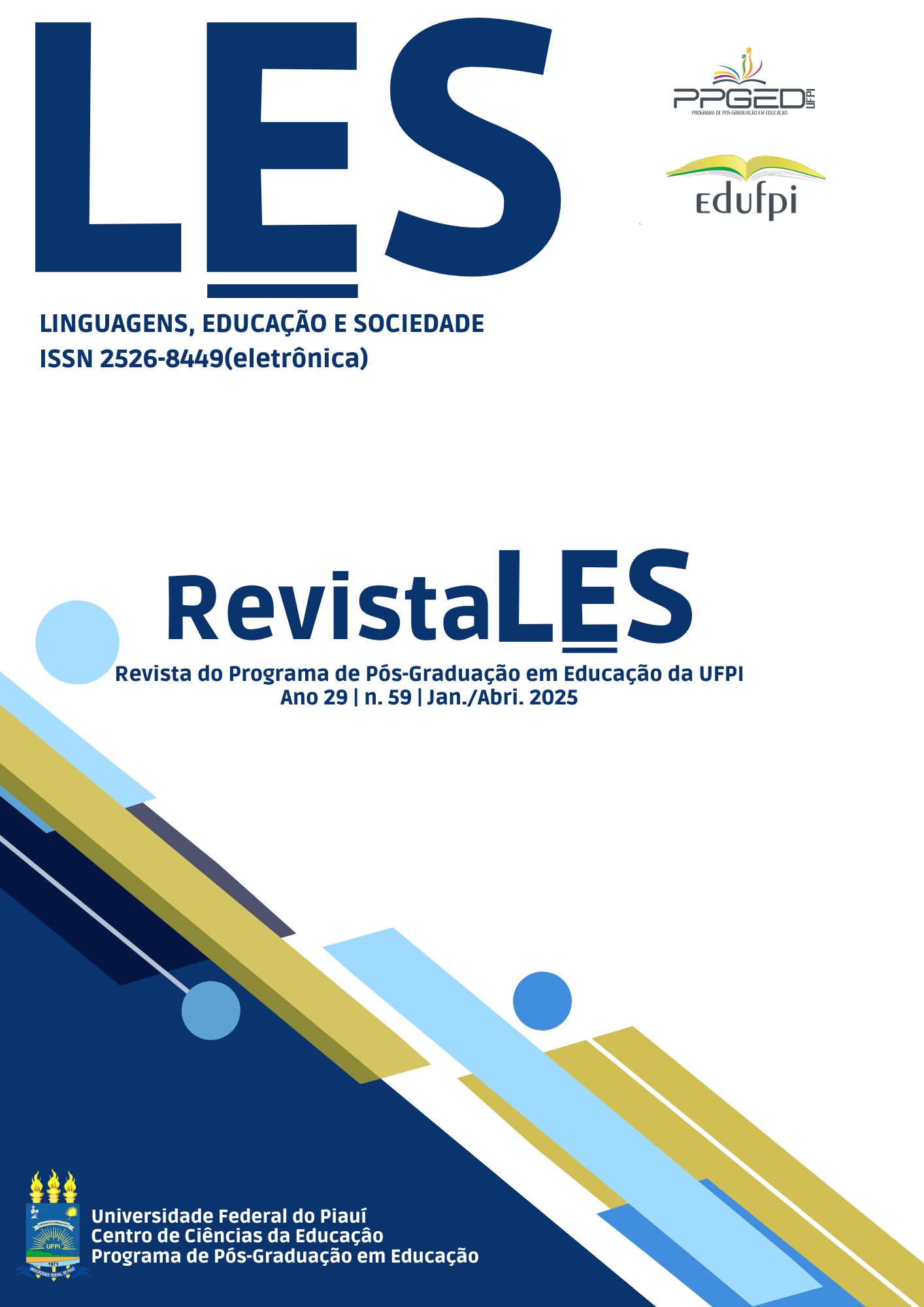ESTRATEGIAS DE INTERVENCIÓN PARA LA RESIGNIFICACIÓN DE LA LECTURA LITERARIA EN LA EDUCACIÓN SECUNDARIA
DOI:
https://doi.org/10.26694/rles.v29i59.6308Palabras clave:
Literary reading, Resignificación, Lectura literaria, Educación SecundariaResumen
La Literatura se presenta como una herramienta para fomentar la reestructuración de las concepciones de los jóvenes en relación con la lectura literária. En este sentido, el presente estudio tiene como objetivo examinar estrategias de intervención que puedan ser reconsideradas para resignificar la lectura literaria en la Educación Secundaria, estableciendo conexiones entre personajes de la Literatura Brasileña y los dilemas vividos por los estudiantes. Por lo tanto, este estudio propone un enfoque multidisciplinario destinado a rescatar el placer por la lectura literaria en la Educación Secundaria, permitiendo que los estudiantes reconozcan en los personajes y obras estudiados un camino para construir significado en su proceso educativo. La metodología adoptada fue la investigación bibliográfica, con énfasis en autores como Antônio Cândido, quien discute la función social de la literatura en textos como El derecho a la literatura, y Paulo Freire, quien, en La importancia del acto de leer, defiende la lectura como un instrumento de concienciación y transformación social. Después del estudio teórico y la selección de obras literarias, se realizó un estudio de caso en una escuela pública, en el que se implementó todo el proceso de intervención y resignificación de la lectura literaria. Al explorar las conexiones entre la Literatura y las experiencias de los estudiantes, se busca fortalecer el vínculo entre la lectura y las vivencias de los adolescentes. Este proceso contribuye a que los jóvenes desarrollen una perspectiva más crítica y reflexiva sobre su realidad, al mismo tiempo que reconocen la escuela como un espacio para el desarrollo personal y colectivo, reforzando la conexión entre conocimiento y experiencia.
Descargas
Citas
BARDIN, Laurence. Análise de conteúdo. Lisboa: Edições 70, 2011.
BRASIL. Ministério da Educação. Diretrizes Curriculares Nacionais Gerais da Educação Básica. Brasília: MEC, SEB, DICEI, 2013.
BRASIL. Ministério da Educação. Governo Federal. Base Nacional Comum Curricular: BNCC, 2017.
BRASIL. Ministério da Educação. Governo Federal. Base Nacional Comum Curricular: educação é a base, 2018.
BRASIL. Histórico. 2022. Disponível em: https://basenacionalcomum.mec.gov.br/historico. Acesso em: 27 maio 2025.
BRASIL. Justiça Federal. Eficaz / eficiente / efetivo. 2024. https://www.trf3.jus.br/emag/emagconecta/conexaoemag-lingua-portuguesa/eficaz-eficiente-efetivo. Acesso em: 12 jan. 2024.
CANDIDO, A. Direitos Humanos e literatura. In: FESTER, A. C. R. (Org.) Direitos humanos. São Paulo: Brasiliense, 1989.
CANDIDO, A. O direito à literatura. In: CANDIDO, A. Vários Escritos. 5 ed. Rio de
Janeiro: Ouro sobre Azul/ São Paulo: Duas Cidades, 2011.
FREIRE, P. A importância do ato de ler: em três artigos que se completam. 21. ed. São Paulo: Cortez/Autores Associados, 1989.
FREIRE, P. Pedagogia da Autonomia: saberes necessários à prática educativa. São Paulo: Paz e Terra, 1996.
MOZZATO, A. R.; GRZYBOVSKI, D. Análise de Conteúdo como técnica de análise de dados qualitativos no campo da administração: potencial e desafios. Revista de Administração Contemporânea, Curitiba, v. 15, n. 4, pp. 731-747, jul./ago. 2011.
SILVA, C. A. R. da ; GALUCH, M. T. B. Formação cultural e educação no contexto das relações sociais capitalistas: educação para quê? Linguagens, Educação e Sociedade, v. 29, n. 59, p. 1–24. 2025. https://doi.org/10.26694/rles.v29i59.6121. Disponível em: https://periodicos.ufpi.br/index.php/lingedusoc/article/view/6121/5064. Acesso em: 30 maio 2025.











